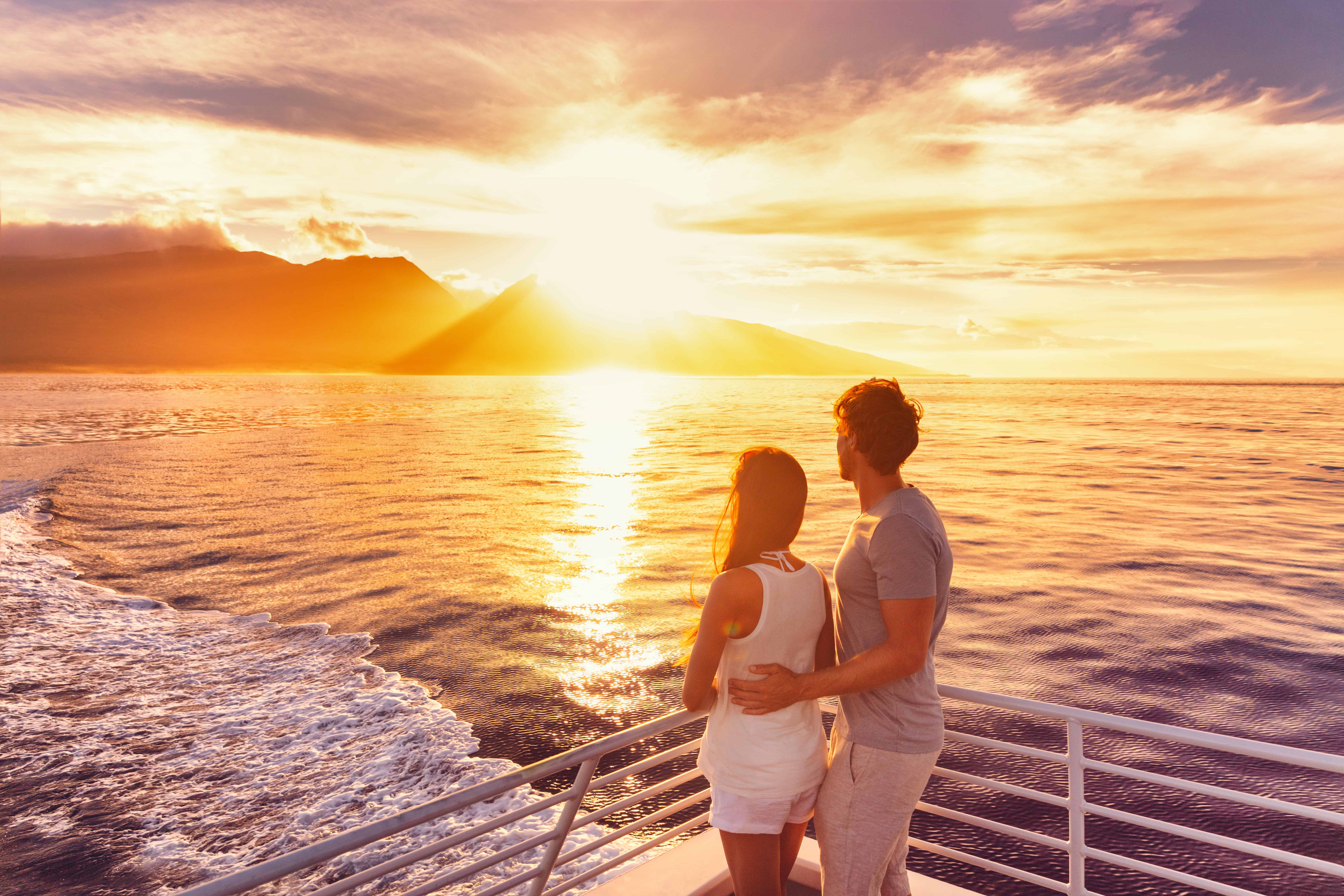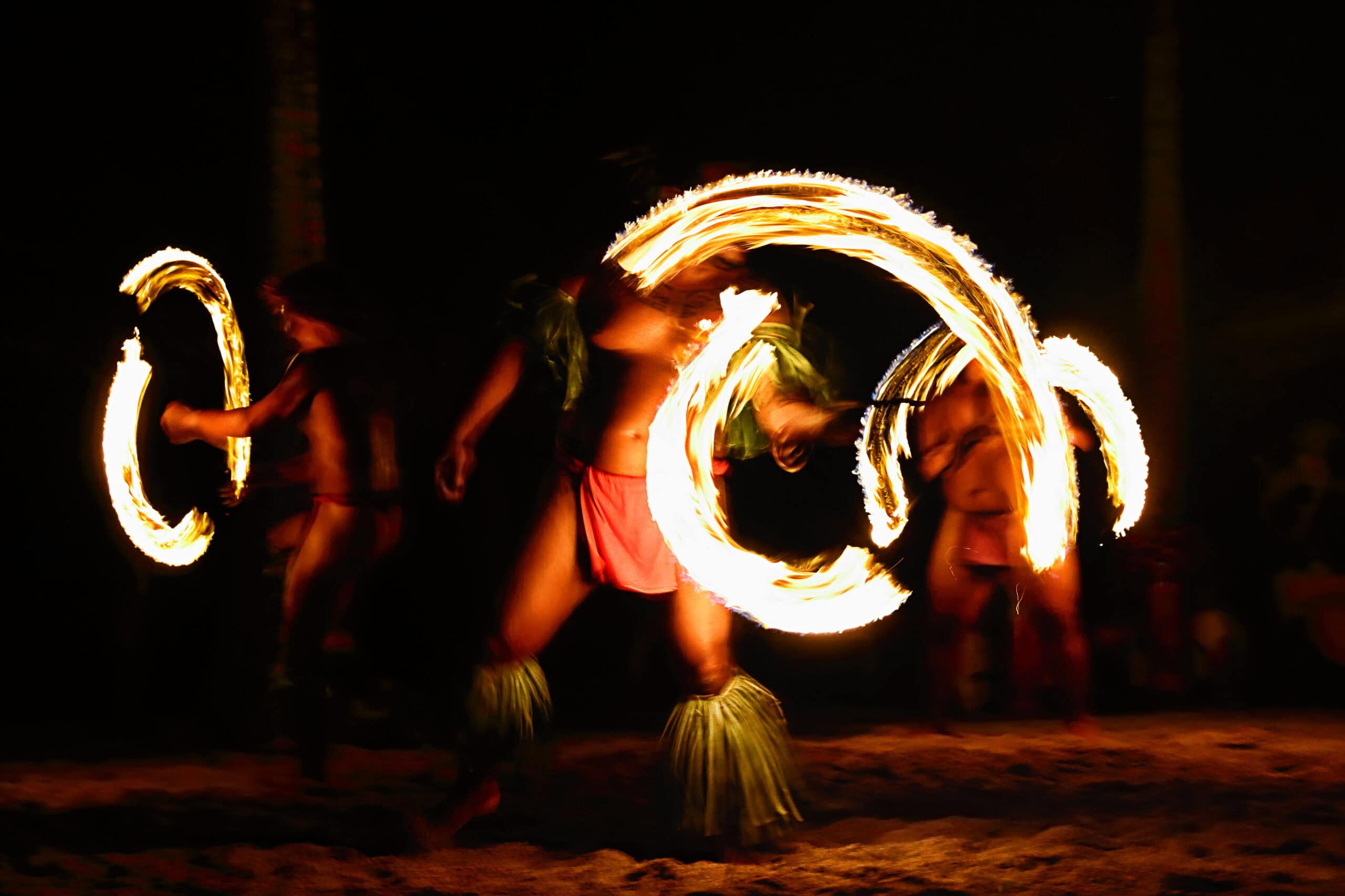Maui is the best Hawaiian island to visit for one reason: there’s tons to do. Beachfront resorts offer the chance to kick back in the sand and enjoy some much-deserved downtime. You can snorkel alongside our amazing variety of iʻa (fish), or catch a surf. People hoping to catch a glimpse of koholā (humpback whale) can venture out to sea on a whale watching tour. And foodies can experience the unique taste of Hawaiian cuisine. Maui truly offers something for everyone.
But if you’re coming to Maui, we want you to experience our island. As a tourist, it’s important for us to show you our culture, the rich history of not only Maui, but all of Hawaiʻi. You may be on Maui for a week, or just visiting Maui for one day. To us, while you’re here, we want to show you around.
From an ancient volcanic snorkeling spot to our national parks, we’ve pulled together our list of must-see tourist attractions so you experience Maui as a whole.
Road to Hāna
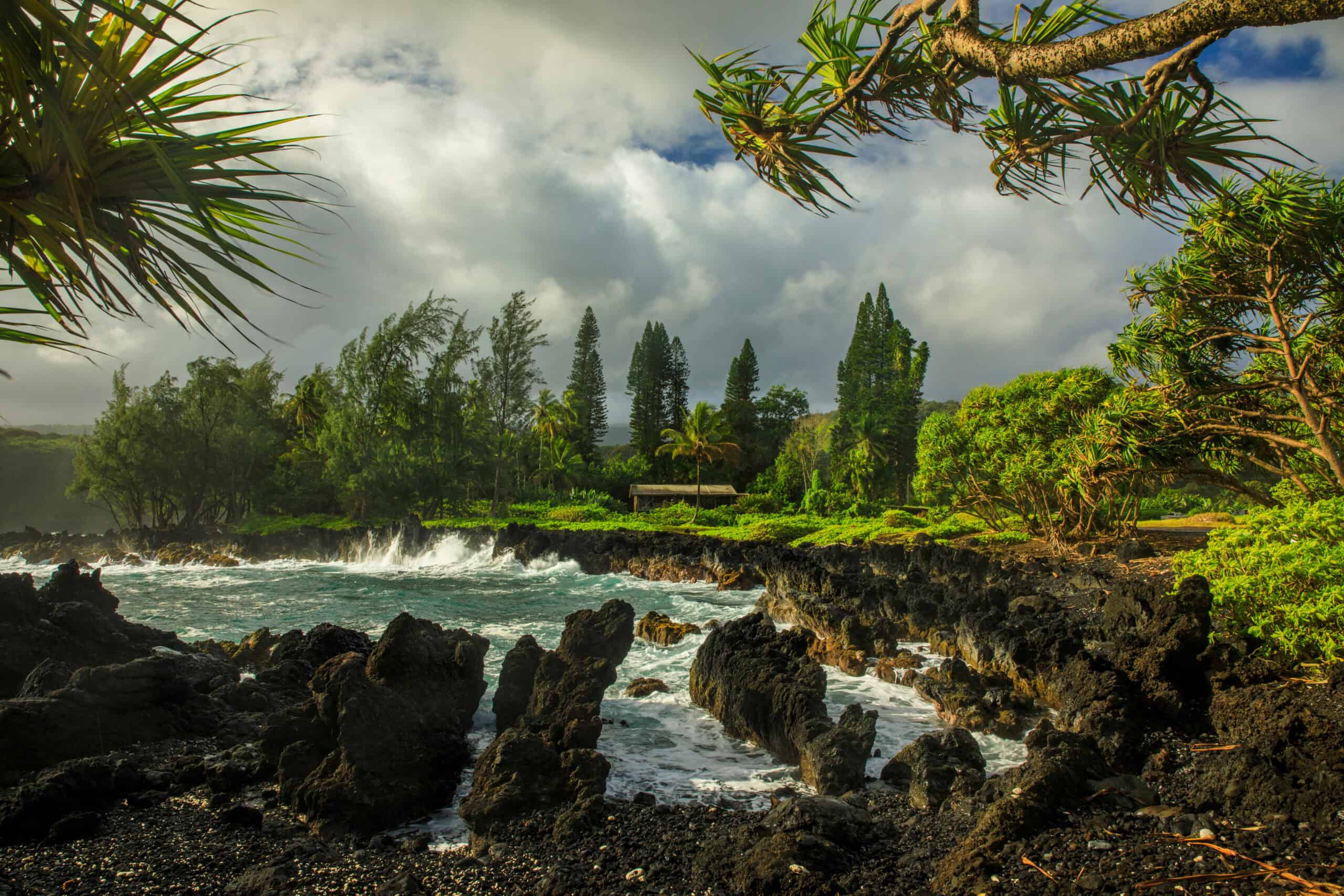
The Road to Hāna—also known as Hāna Highway—is a 64.4-mile scenic route on the northeast coast of Maui. It takes about 2.5 to 3 hours to drive without stopping, although most travelers stop at some of the many attractions along the way.
You’ll find cascading waterfalls like Twin Falls and the Pools of ʻOheʻo (Seven Sacred Pools), or panoramic views at Huelo Lookout. Immerse yourself in the Garden of Eden Arboretum—a flourishing rainforest with waterfalls and an art gallery—explore the historic village of Keʻanae Peninsula, or admire what nature offers at Waiʻānapanapa State Park. You can of course grab a gift for you or a loved one if you stop in Hāna Town with its local shops, restaurants, and cultural centers.
What to Know
Be sure to start early to avoid crowds, especially during peak season. Since many places are cash-only, bring enough for your trip, and fill up your gas tank beforehand as there aren’t a lot of stations on the route. (If you’re interested in stopping by Waiʻānapanapa State Park, consider booking your entry in advance.)
Haleakalā National Park
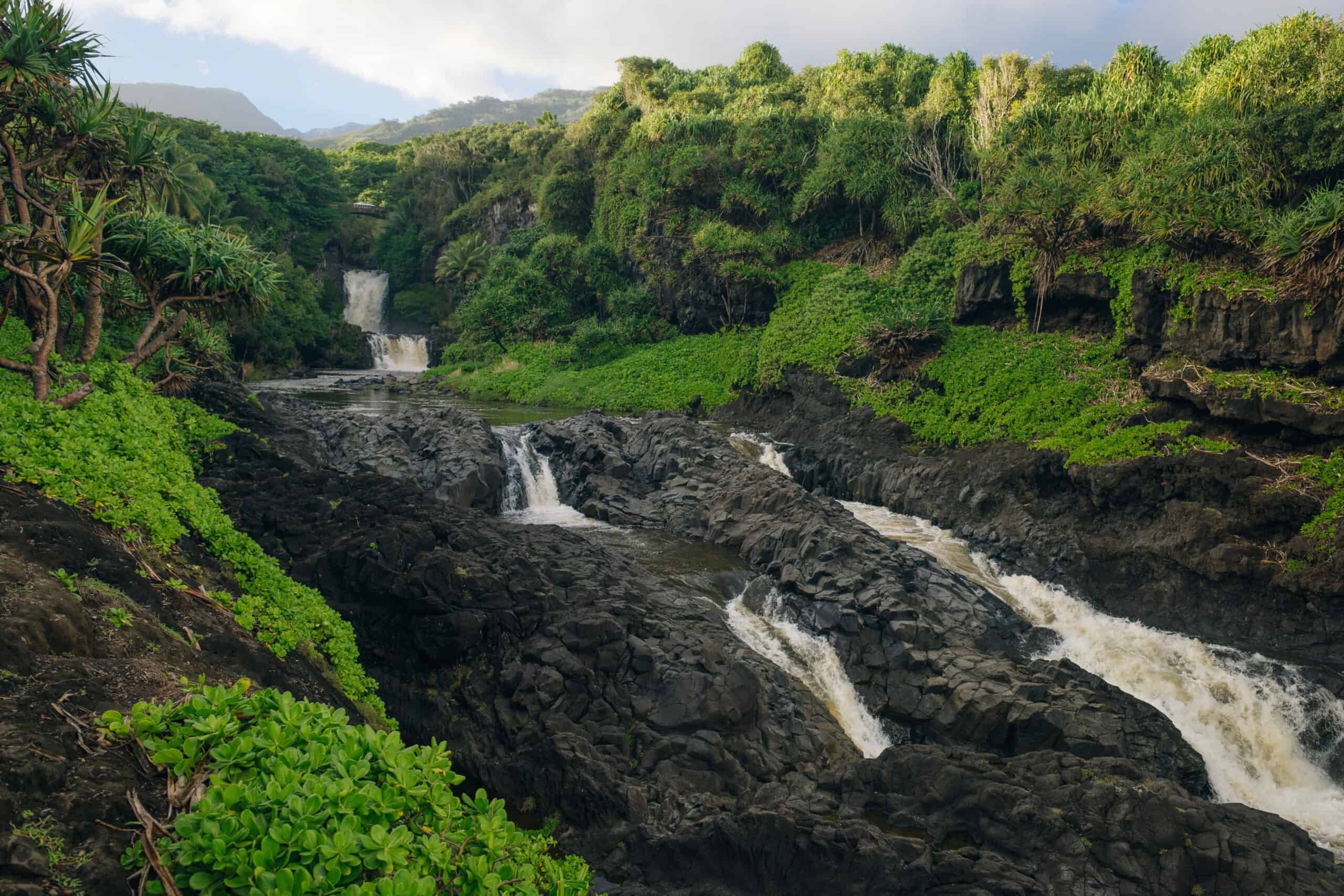
Haleakalā National Park is home to Haleakalā, a lua pele (volcano) with a rich cultural significance. Legend claims the demigod Maui captured the sun on Haleakalā, extending daylight for the people of Hawaiʻi.
The park offers a variety of activities including its iconic sunrise and sunset viewing. You can hike through the birdwatcher’s paradise of Hosmer Grove or take on the challenging Sliding Sands Trail for a panoramic view of the entire crater. With minimal light pollution and high elevation, Haleakalā is an amazing spot to stargaze.
What to Know
You will need an entrance pass to access the park and a standard pass costs between $15 to $30. Remember you are in a national park so please:
- Respect our culture and treat sacred areas and ceremonies with respect.
- Be a responsible visitor and follow park regulations. Practice “Leave No Trace” principles, and minimize your impact on the environment.
- Observe wildlife from a safe distance and avoid disturbing them.
- Maintain park etiquette and be considerate of other visitors while taking photos.
- Plan your trip accordingly and check the park website for updates, closures, and sunrise reservation requirements.
Learn more about Haleakalā National Park here.
Molokini Crater
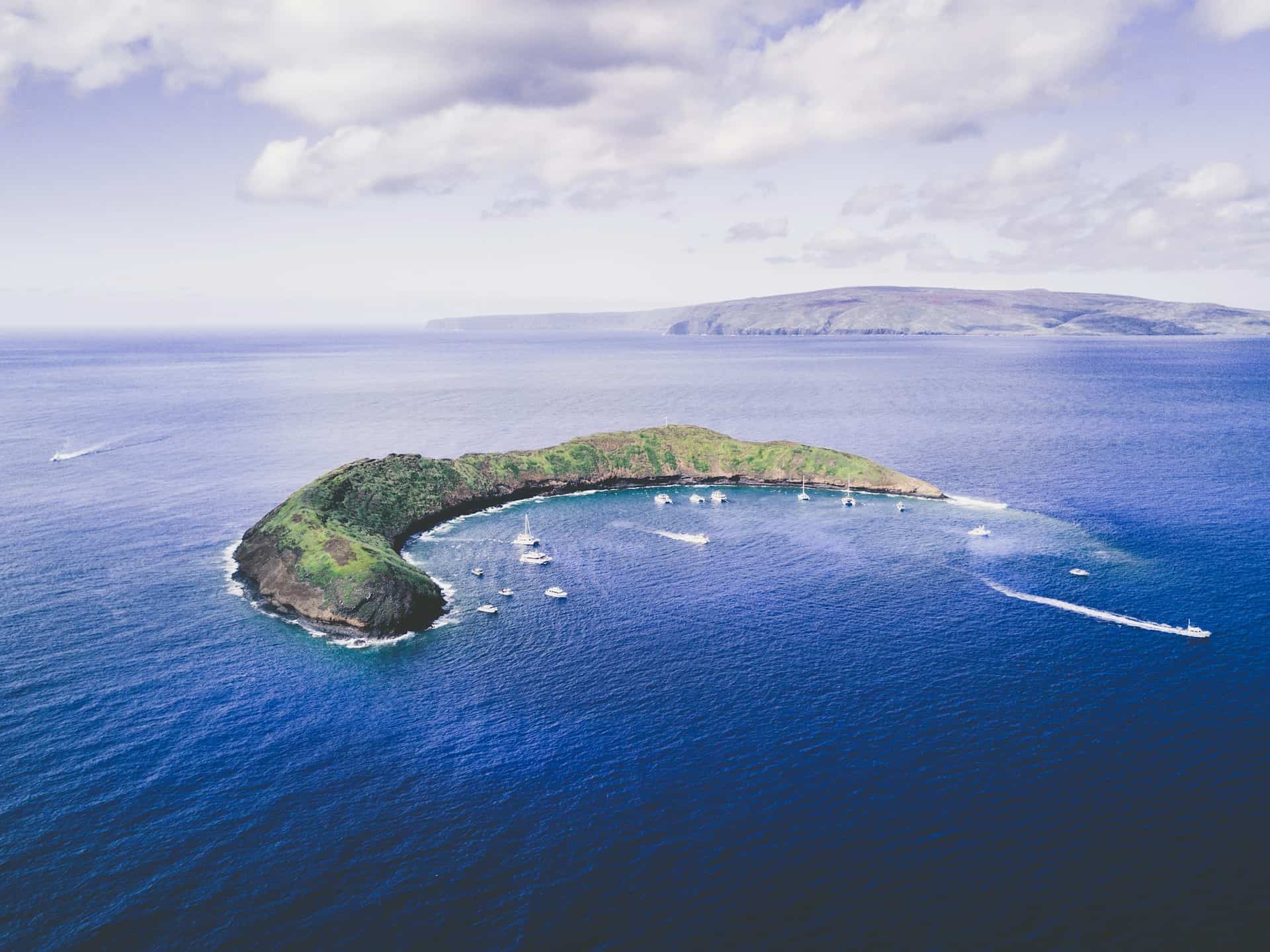
Molokini Crater is a partially submerged volcanic crater just off the south coast of Maui. It’s a crescent-shaped atoll formed from a volcanic eruption about 230,000 years ago. With its clear waters and abundant sea life, the crater is now a popular spot for snorkeling and scuba diving. Scuba divers and snorkelers can explore the calm, clear waters within the crater, or explore the backside wall dive that drops hundreds of feet. Molokini Crater is an incredible spot if you’re trying to explore life below the waves.
What to Know
You have to travel by boat to get to the crater and boats leave from three main areas: Makena, Kīhei Boat Ramp, and Māʻalaea Harbor (where we at Maui Ocean are located). You’ll want to bring a swimsuit, towel, reef-safe sunscreen, hat, and sunglasses.
You have options to scuba dive (if certified), snorkel, or snuba, where you are connected to a scuba tank that sits on a boat or raft at the surface and allows you to breathe underwater and explore deeper than snorkeling.
Learn more about Molokini Crater here.
ʻĪao Valley State Monument
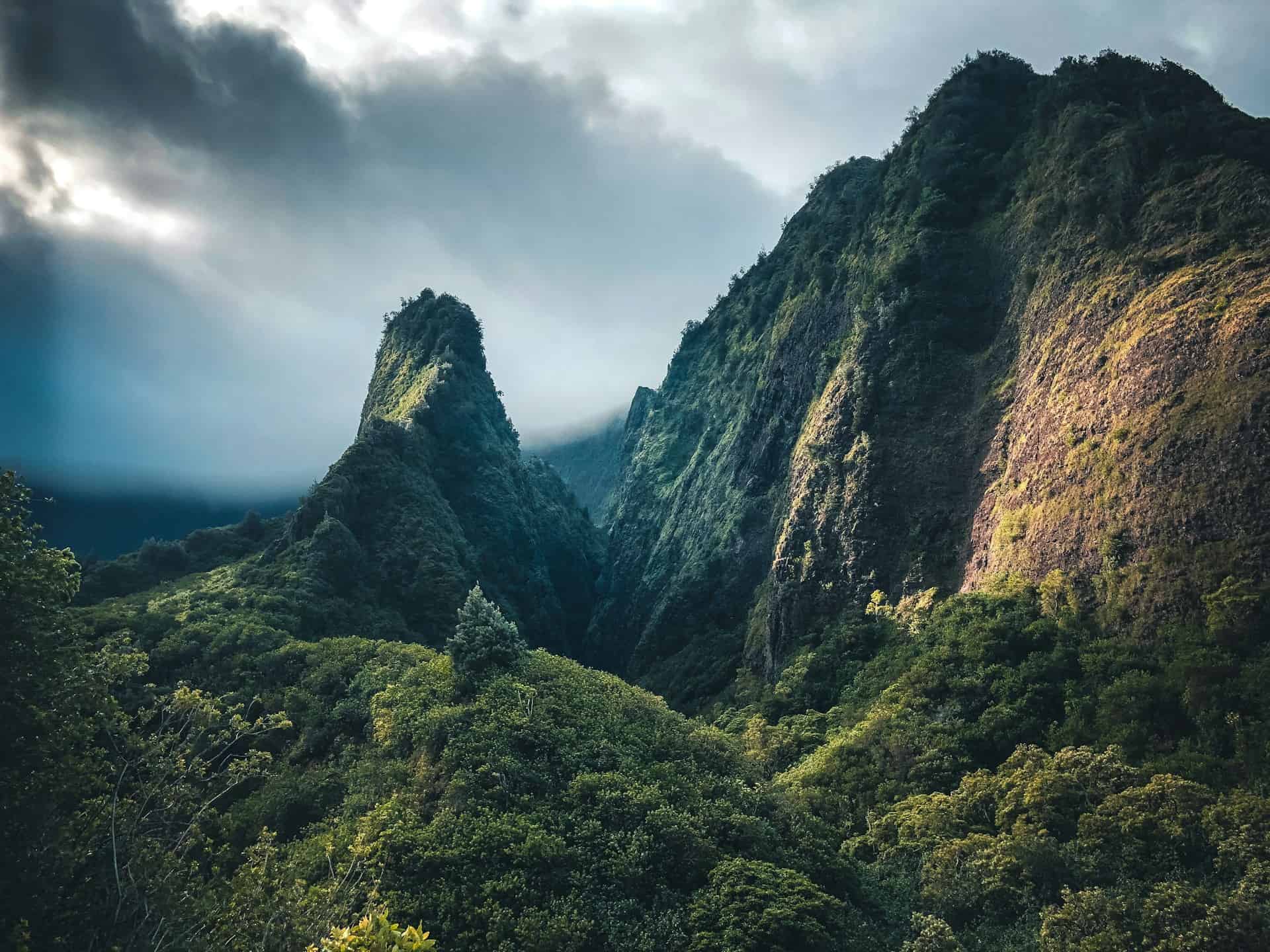
ʻĪao Valley State Monument is a 4,000-acre valley located in the center of the island known for its natural beauty and cultural heritage. The crown jewel is the ʻIao Needle, a 1,200-foot volcanic rock formation that rises from the valley floor. Historically, the valley was a sacred site and battleground during the unification of the Hawaiian Islands under King Kamehameha I in 1790.
You can now hike along a paved path for stunning views of the ʻĪao Needle and the valley, taking in the natural beauty and history.
What to Know
The park is open from 7 a.m. to 6 p.m. (last entries must be on the trail by 5 p.m). Park rates are $5 per person and $10 to park. Because the park gets busy, you can make a reservation up to 30 days in advance to get your spot.
You’ll want to bring comfortable shoes, some rain gear in case Mother Nature joins you, and your camera.
Learn more about ʻĪao Valley State Monument here.
Kahanu Garden
Kahanu Garden isn’t just a botanical garden but a journey through history and nature. The land originally belonged to Chief Kahanu in the mid-1800’s and was entrusted to the National Tropical Botanical Garden (NTBG)—a non-profit organization that focuses on preserving tropical plant life—by the chief’s descendants in 1974.
The garden is home to Piʻilanihale Heiau, the largest ancient temple in Polynesia. The 13th century temple was restored and serves as a cultural reminder of the importance of the land so you can look but you cannot walk on it. You can also take self-guided or guided tours of the garden and view the world’s most diverse collection of ulu (breadfruit). (You can also experience Maui’s flora with our Hawaiian Culture & Botanical Plant Tour for an educational experience with our naturalist today.)
What to Know
The garden is open from 9 a.m. to 3 p.m. Monday through Saturday (it is closed on Sunday). Parking is available but spots can be limited so getting there earlier is recommended. Always check the weather, wear comfortable shoes and clothes, and bring some snacks. The tours typically take about an hour.
Self-guided tours cost $18 (adults) and $10 (Kama’aina, or Hawaiian residents), and are free for children under 12. Guided tours are $30 (adults) and free for children under 12.
Learn more about Kahanu Garden here.
Maui Ocean Center
The Maui Ocean Center is an aquarium and nature center focused on showcasing and preserving Hawaiian marine life. We have a variety of exhibits featuring animals from the surrounding waters of Maui, including rare and endemic species. The center is committed to sustainability and education, offering tours that integrate ocean science, conservation, and cultural history. We also partner with various organizations on marine life rescue, coral reef restoration, and educational programs.
Our Seascape Restaurant is an award-winning beachfront restaurant known for its sustainable seafood and scenic views. Our chef serves fresh, local Hawaiian cuisine with a focus on seafood and only uses locally sourced ingredients. (We’re located right on Māʻalaea Bay so enjoy your meal while watching humpback whales too!)
While you’re here you can pop into our Ocean Treasures gift shop for locally-made and sustainable gifts great for you and your loved ones. There’s no aquarium ticket required to dine at Seascape or shop at Ocean Treasures.
What to Know
We are open 365 days a year from 9 a.m. to 5 p.m. (holidays may change hours slightly). Visitors typically stay at our park for around 2 to 2.5 hours.
Our admission price is $39.95 for adults, $29.95 for children ages 4 through 12, and free for children under 4.
Book your tickets with us today and come see what Maui Ocean Center has to offer!
When traveling to Maui there will never be a shortage of things and places to see. Make sure you’re always abiding by local and cultural laws when exploring the natural beauty of Maui and most importantly, relax! That’s what you came to do after all.

